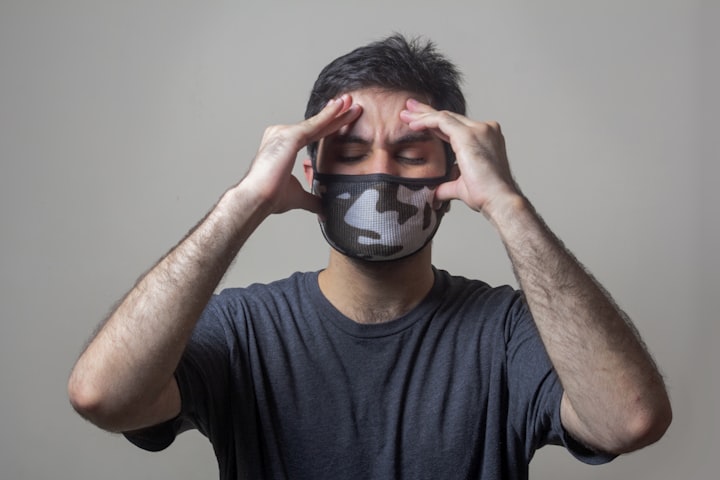
Headaches can be caused by a variety of factors, including tension, dehydration, illness, medication, or a neurological condition. Here are some common causes:
Tension headaches: These are the most common type of headache and are usually caused by stress or tension in the muscles of the head, neck, and shoulders. They can also be caused by poor posture, fatigue, or emotional stress.
Migraine headaches: These headaches are often characterized by intense, throbbing pain on one side of the head, along with sensitivity to light and sound. They are thought to be caused by changes in brain chemicals and blood flow.
Cluster headaches: These are rare headaches that occur in cyclical patterns or clusters, often at the same time of day or night. They are often accompanied by symptoms such as red, watery eyes and nasal congestion.
Sinus headaches: These headaches are caused by inflammation or infection in the sinuses, the air-filled cavities located in the bones of the face and skull.
Rebound headaches: These headaches are caused by overuse of headache medication, which can actually make headaches worse over time.
Trauma: Headaches can also be caused by trauma, such as a concussion or a blow to the head.
If you experience frequent or severe headaches, it is important to see a healthcare professional to determine the underlying cause and develop an appropriate treatment pla
Types of headache
Headaches are a common ailment that can affect people of all ages and lifestyles. There are many different types of headaches, each with their own causes and symptoms. Understanding the different types of headaches can help you identify the cause of your headache and find appropriate treatment.
01. Tension Headaches
Tension headaches are the most common type of headache. They are often caused by stress or tension in the muscles of the head, neck, and shoulders. Tension headaches can also be caused by poor posture, fatigue, or emotional stress. Symptoms of a tension headache include a mild to moderate headache that feels like a band tightening around the head, along with muscle tension and tenderness.
02. Migraine Headaches
Migraine headaches are a type of headache that is often characterized by intense, throbbing pain on one side of the head, along with sensitivity to light and sound. Migraines can also cause nausea, vomiting, and visual disturbances. They are thought to be caused by changes in brain chemicals and blood flow. Women are more likely to experience migraines than men.
03. Cluster Headaches
Cluster headaches are a rare type of headache that occurs in cyclical patterns or clusters, often at the same time of day or night. They are often accompanied by symptoms such as red, watery eyes and nasal congestion. Cluster headaches can be very severe and can last for weeks or months at a time.
04. Sinus Headaches
Sinus headaches are caused by inflammation or infection in the sinuses, the air-filled cavities located in the bones of the face and skull. Symptoms of a sinus headache include pain and pressure in the face and head, along with nasal congestion and discharge.
05. Rebound Headaches
Rebound headaches, also known as medication overuse headaches, are caused by overuse of headache medication. Taking too much medication can actually make headaches worse over time. Rebound headaches can occur with any type of headache medication, including over-the-counter pain relievers and prescription drugs.
06. Hormone Headaches
Hormone headaches are often related to hormonal changes that occur during the menstrual cycle. They are more common in women and can occur before, during, or after menstruation. Hormone headaches can also be caused by hormonal contraceptives or hormone replacement therapy.
07. Exertion Headaches
Exertion headaches are caused by physical activity, such as running, weightlifting, or sexual activity. They are often described as a throbbing pain on both sides of the head and can last for several hours.
08. Post-Traumatic Headaches
Post-traumatic headaches can occur after a head injury or concussion. Symptoms may include a persistent headache, dizziness, and sensitivity to light and noise.
09. Cervicogenic Headaches
Cervicogenic headaches are caused by neck problems, such as a pinched nerve or muscle tension. The pain is often felt on one side of the head and neck and can be triggered by certain movements or positions.
10. Thunderclap Headaches
Thunderclap headaches are a rare but serious type of headache that occur suddenly and are very intense. They can be caused by a variety of factors, including bleeding in the brain or a ruptured blood vessel. Thunderclap headaches require immediate medical attention.
In conclusion, headaches can be caused by a variety of factors, and it is important to identify the type of headache to determine the best treatment plan. If you experience frequent or severe headaches, it is important to see a healthcare professional to determine the underlying cause and develop an appropriate treatment plan





Comments (1)
Nice